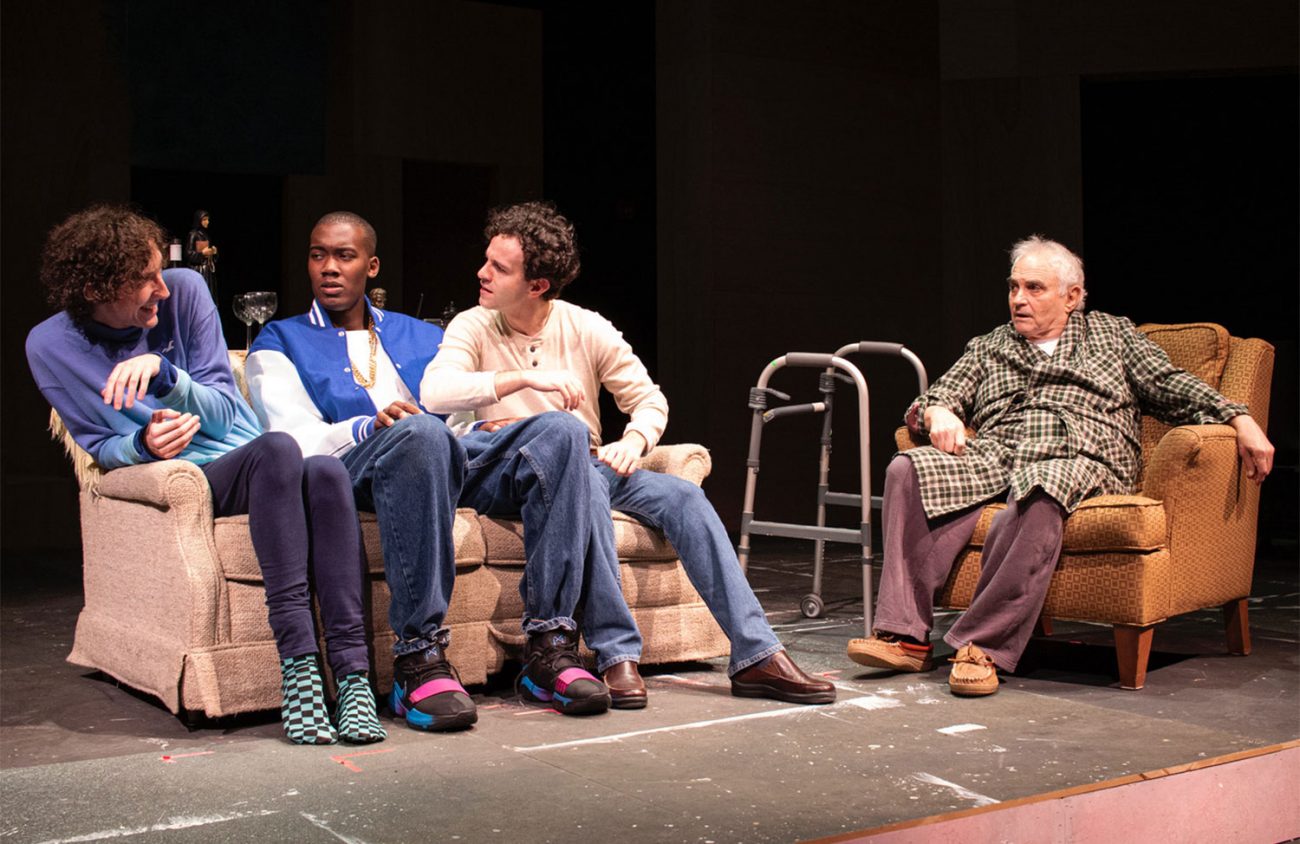In the past decade, the Lebanese American playwright Stephen Karam has garnered a substantial list of prestigious theater awards, including a Tony, an Obie and two Pulitzer Prize nominations, one of them for his 2012 play, Sons of the Prophet.
I was eager to see the current production of this play at the University of Oregon, but both the script and the staging seemed undercooked on opening night. First of all, the director, Michael Malek Najjar, needed to push the young, inexperienced actors to increase their volume and improve their diction. I wasn’t the only one straining to hear some of the dialogue. (Yes, I took a discrete survey.)
The title refers to Joseph and Charles Douaihy (Alex Mentzel and Jack Ford), brothers who, according to family legend, are distantly related to the Lebanese American writer-philosopher-artist, Kahlil Gibran (1883-1931).
Gibran reached global cult status after his death, primarily for his slender book of homilies, The Prophet. This familial connection, combined with their father’s recent death, possibly caused by a high school football player’s prank, makes the brothers semi-celebrities.
Joseph’s demented employer Gloria (Taelor Warner) wants him to write a memoir that she will publish. Timothy (Jude Stone), a TV reporter, deceives Joseph in an effort to report the family history and make a name for himself.
The irony is that Joseph and Charles, both of whom are gay and apparently incapable of making a comfortable living, might be able to profit from The Prophet, that is, from their link to its author. But who would want to lay themselves bare, especially with their burdens?
Such as, old Uncle Bill (Jonas Israel), who has to move in with them because he can no longer care for himself. His language is shockingly un-PC, and his bathroom problems are funny but awful. Charles was born with only one ear. Joseph may be facing serious illness at age 29.
The two strongest actors are the most experienced. Israel has enjoyed a long professional career in the theater, and Mentzel has been acting, singing and dancing like a pro since he was a child.
Kelsey Stewart and Sasha Kartman, in multiple small roles, provide some of the evening’s laughs, but their characters are written as caricatures and must be played as such. Although the leading characters are written fairly realistically, it seems as though the minor characters have been shortchanged. They are far more stupid than they need to be. Completing the cast are Kwadwo Assensoh, as the football player, and Jen Gerould, as a kindergarten teacher.
The author, like Zeus hurling his thunderbolt, strikes his beleaguered characters with one misfortune after another. They don’t know who’s to blame: God, a friend, government? A limitless string of calamities?
The play dabbles in so many topics that it could be further described with a list of subtitles: Tangled Lives, The Source of Blame, The Death of Privacy, Religion for Non-Believers, Sell Your Soul for Medical Insurance.
Sons of the Prophet is called a comic drama or a dark comedy. It is dark, but short exchanges of dialogue are funny, and the sold-out opening night audience laughed readily. However, I wish Karam, instead of taking a shallow dive into myriad genres of woe, had taken a deep plunge headfirst into a narrower, more focused topic. ν
Sons of the Prophet is playing at the University of Oregon’s Hope Theatre through Feb. 8; times and tickets at tickets.uoregon.edu/sons-prophet or 541-346-4363.
